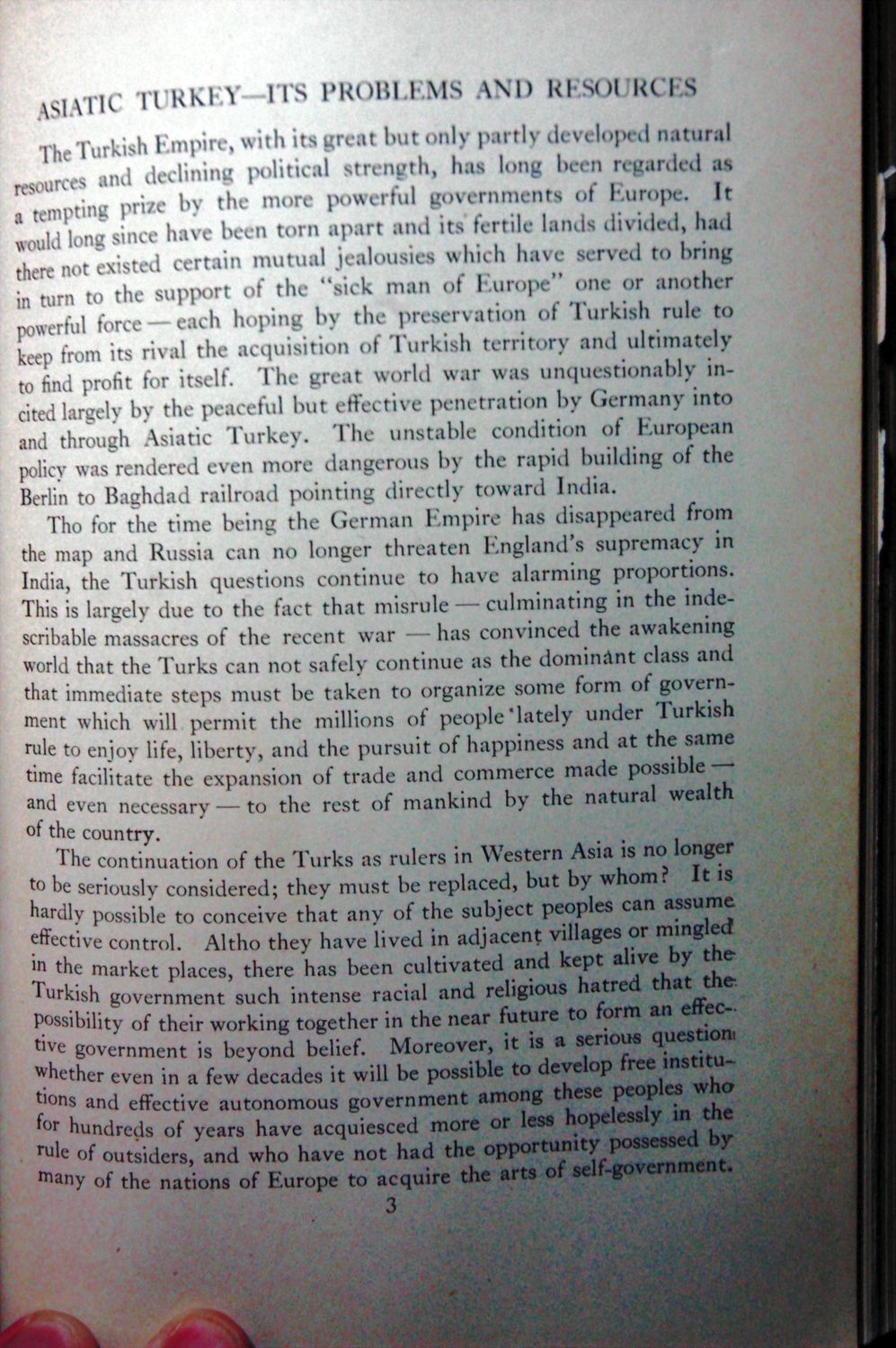| |
| |
Caption: War Publications - WWI Compilation 1923 - Article 23
This is a reduced-resolution page image for fast online browsing.

EXTRACTED TEXT FROM PAGE:
\ill Y-ITS l<( I l-.mnilt, With its grett b u t - n U p.uth dew h-p d •g sources It powerful go bee here not existed certain mutual jealousies which have served r., bring in turn to the support of the "sick man ,f I on.,*" one or another powerful force-each hoping by the preaervatiorj of I urkish rule to keep from its rival the acquisition of Turkish territory and ultimately to find profit for itself. The gnat uorld war was unquestionably incited largely by the peaceful but effective penetration by Germany into and through Asiatic Turkey. The unstable condition of European policy was rendered even more dangerous by the rapid building of the Berlin to Baghdad railroad pointing directly toward India. Tho for the time being the German Empire has disappeared from the map and Russia can no longer threaten England's supremacy in India, the Turkish questions continue to have alarming proportions. This is largely due to the fact that misrule — culminating in the indescribable massacres of the recent war — h a s convinced the awakening world that the Turks can not safely continue as the dominant class and v rn that immediate steps must be taken to organize some form of g° £ ment which will permit the millions of people'lately under I urkish rule to enjoy life, liberty, and the pursuit of happiness and at the same time facilitate the expansion of trade and commerce made possible and even necessary — to the rest of mankind by the natural wealth of the country. The continuation of the Turks as rulers in Western Asia is no longer to be seriously considered; they must be replaced, but by whom. It is hardlv possible to conceive that any of the subject peoples can assume effective control. Altho they have lived in adjacent villages or ming ed in the market places, there has been cultivated and kept ahve by tneTurkish government such intense racial and religious hatred that tne. Possibility of their working together in the near future to form an eitec-. tive government is beyond belief. Moreover, it is a serious question. possible whether even in a rew aecaacs it wm ut F w^.~ "Oilier i whr> t'ons and effective autonomous government among these peoplesi wn for hundreds of years have acquiesced more or less hopelessly in trie e s s e d . rule of outsiders, and who have not had the opportunityf P ^ ^ government 3 *
| |